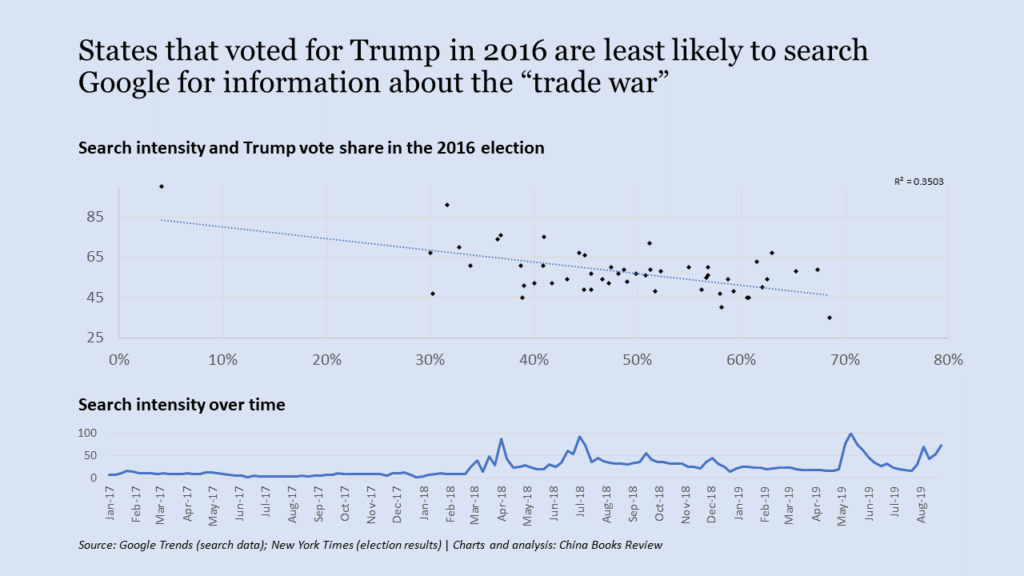The trade war took another of its many turns this week as the United States and China agreed to resume talks in October, sending markets higher. The news is presumably a fillip for Trump-leaning states, which have been disproportionately and purposefully targeted by China’s retaliatory tariffs. That is, if they’re paying attention. A new analysis for China Books Review finds that the states that most strongly supported Donald Trump in the 2016 election are the least likely to search Google for information about the trade war.

Each additional percent of the vote Trump won in 2016 was associated with a 5.7 drop in the intensity of searches from that state for the term “trade war.” The nation’s capital had the highest share of searches, normalized at a score of 100, and West Virginia the lowest, at 35. Trump’s vote share explained 35% of the variation in search intensity. Other variables tested, including China’s share of a state’s trade and the value of trade with China as a proportion of GDP, were not statistically significant.
While recent reporting has captured some disillusionment among Trump supporters about the trade war, particularly those exposed to the agriculture industry, Republicans overall still support the president’s handling of trade. According to an August Quinnipiac poll, 81% of Republicans support Trump’s trade policies, well above the 54% support his trade policies garner among voters overall.
Google Trends is a tool to understand search trends over time and across geographies. Results indicate the relative share of searches within a geography, not absolute volume, and are normalized against the geography with the highest proportion of searches. Interest in the trade war began spiking in late February 2018 and have remain elevated compared to activity at the beginning of Trump’s term.